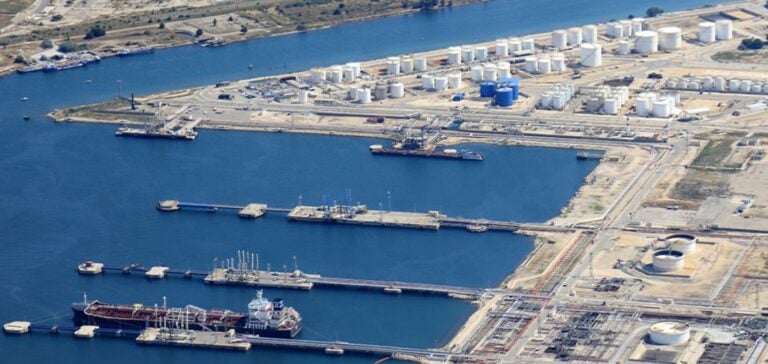Marseille Fos pursues its energy ambitions in the first half of 2024, with significant progress on several major projects.
Overall traffic amounts to 34.8 million tonnes, supported by initiatives that reinforce the transition to cleaner, more sustainable energies.
Strategic Energy Projects
Among the flagship projects, GravitHy stands out for its use of low-carbon hydrogen for steel production.
The preliminary consultation, completed in January 2024, marks an important milestone.
The project aims to reduce CO₂ emissions by almost 90%, representing a major breakthrough for the steel industry.
In March, start-up Carbon launched an ongoing consultation for what will become Europe’s largest photovoltaic panel factory.
The application for planning permission, submitted in April, is a crucial step towards increasing solar energy production capacity in Europe.
The H2V Marseille Fos project, launched in May, involves the construction of a massive green hydrogen unit.
The project aims to reduce CO₂ emissions by 800,000 tonnes a year, reinforcing carbon neutrality objectives.
The signing of the promise to lease for the first phase secures the necessary land.
Environmental Initiatives
The port is constantly improving its environmental practices.
Shore power for ships serving Corsica and the Maghreb reduces emissions by allowing ships to switch off their engines when stationary.
In addition, LNG ship calls increased by 18% to 128, demonstrating the commitment to cleaner fuels.
Logistics and Energy Performance
Liquid bulk remained stable at 21.6 million tonnes, with a notable 10% increase in imports of refined products, mainly diesel, reaching 5.5 million tonnes.
LPG traffic also rose by 9%, to 1.03 million tonnes.
Container traffic increased by 7%, with 719,000 units handled in the first half of 2024, thanks to the arrival of new transshipment ports.
Progress in energy projects demonstrates Marseille Fos’ determination to become a leader in energy transition.
The GravitHy, Carbon and H2V projects, combined with environmental initiatives, demonstrate a strong commitment to sustainability.
At the same time, logistics performance continues to support this ambition, positioning Marseille Fos as a key player in energy innovation.






















